As a society we are led to believe that taking a prenatal vitamin during pregnancy will provide all the nutrients we need for a happy and healthy birth outcome. Although most prenatal vitamins do provide calcium, vitamin A, vitamin B1 (thiamine), vitamin B5 (pantothenic acid), vitamin B6 (pyridoxine), vitamin B7 (biotin), vitamin B9 (folic acid) or folate, vitamin B12 (cobalamin), vitamin C, vitamin E and vitamin D, there are three critical nutrients that your prenatal may lack, or be missing entirely. Read on to learn more about these.
DHA and healthy development of the fetus
DHA, an omega-3 fatty acid, is one of the key building blocks for fetal development. During pregnancy the fetus obtains DHA through the mother, and it is imperative that the mother has adequate DHA stores to support both her and her developing baby’s needs.
According to the American Pregnancy Association, pregnant women should ingest a minimum of 300 mg of DHA a day. Because many prenatal vitamins do not contain DHA, this means pregnant women need to obtain their daily minimum through fatty fish or fish oil. Given that pregnant women are advised to limit consumption of low-mercury fish to 2-3 times per week, incorporating a fish oil supplement containing at least 300 mg/d can help support your DHA needs if your prenatal is lacking.
Vitamin D supports a healthy pregnancy
You have probably heard of the benefits of vitamin D for bone, brain, cardiovascular and immune health, but did you know that vitamin D is also important for supporting a healthy pregnancy and the development of your baby?
The majority of prenatal vitamins contain vitamin D within the range of 400 IU (10 mcg) to 1,000 IU (25 mcg), however these values may not be enough. In a study examining the vitamin D levels of women consuming a prenatal supplement with 600 IU/day and two glasses of vitamin D fortified milk, researchers found that 76% of mothers and 81% of newborn babies were deficient in vitamin D (levels < 20 ng/mL). This raises the question: how much vitamin D do you need to increase your levels? In a study comparing doses of 400, 2000 and 4000 IU/ day in pregnant women from early pregnancy (12-16 weeks) to delivery, researchers found that 4000 IU was the most effective at safely increasing vitamin D blood levels. Does this mean that every pregnant woman needs 4000 IU of vitamin D? Not exactly. The best thing to do is to get your vitamin D levels tested and talk to your healthcare practitioner about what dose is right for you.
Choline benefits pregnancy and beyond
Although choline doesn’t get a lot of attention, it is a nutrient with a number of impressive, long lasting benefits. For example, higher maternal choline intakes have been shown to support cognition and lower levels of circulating cortisol. This is significant because lowering a baby’s production of cortisol could, over their lifetime, reduce their risk of certain stress-related disorders. In terms of improving cognition, research finds that children who received additional choline in utero showed increased attention span and problem solving at age seven.
For the mother, the benefits of increased choline intake are linked to a reduced risk of certain complications during pregnancy and an increase in placenta and liver function during pregnancy. The benefits of choline during pregnancy make it one nutrient you’re going to want to make sure is on your prenatal vitamin’s supplement facts panel. You can consume choline through your diet, and supplement as needed. If you’re aiming to get your choline from food first, one of the highest sources of choline are eggs. For a convenient and nutrient-dense source of choline, you can explore our Organic Beef Liver, Heart & Kidney.
See the chart below for more choline sources and their amounts.
| Food Source | Choline (mg) |
| Beef liver, 85g pan fried | 356 |
| Egg yolk, large | 147 |
| Beef, 85g lean top round braised | 117 |
| Ground beef, 85g cooked | 85 |
| Pork tenderloin, 85g cooked | 83 |
| Salmon, 85g | 77 |
| Cod, 85g baked | 71 |
| Chicken breast, 85g | 65 |
| Shiitake mushrooms, 1/2 cup cooked | 58 |
| Soybeans, 1/4 cup cooked | 53 |
| Broccoli, 1 cup cooked | 51 |
| Kidney beans, 1/2 cup canned | 45 |
| Quinoa, 1 cup cooked | 43 |
| Garbanzo beans, 1/2 cup cooked | 35 |
In summary, even though we are taught to fully trust a prenatal vitamin to deliver all the nutrients needed during pregnancy, remember to double check the label. Key nutrients like vitamin D, choline, and DHA can often be lacking or nonexistent in many prenatal vitamins. While there is no such thing as a “perfect” prenatal vitamin, if you do your research and supplement accordingly, you’ll be well on your way to having a healthy and happy pregnancy. For targeted support for healthy hair growth and strength, consider My Hair, a formula designed to nourish hair from the inside out.
by Kate Turner, MA, RD, CPT
Kate Turner, MA, RD, CPT is the Nutrition Specialist at Nordic Naturals. As a Registered Dietitian and personal trainer, Kate is passionate about improving people’s health through evidence-based nutrition education and exercise. Kate has over 7 years of experience in the field of nutrition as a wellness director, private nutrition consultant, educator, and public speaker.




